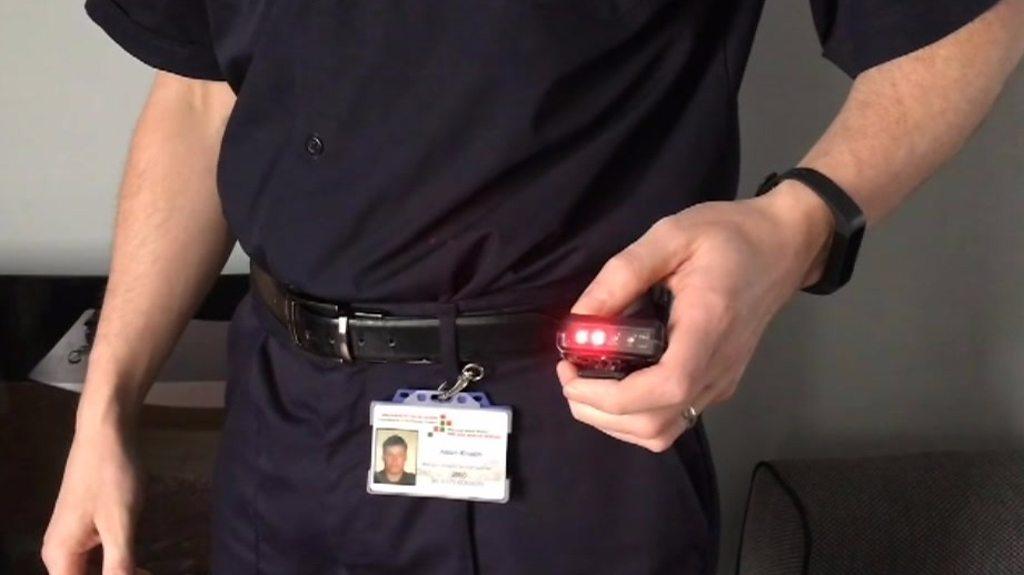Firefighters on call: 'Crew are my extended family'
- Published
Retained firefighters are on-call up to 120 hours a week
Imagine being on call up to 120 hours a week, ready to respond to life-threatening fires, fatal crashes and emergency rescues at any moment - and this is not even your main job.
As figures show numbers of retained firefighters across Wales are at a nine-year low, BBC Wales spoke to on-call recruits in Neath Port Talbot to find out what draws them to the fire service.
Father-of-two Adam Khadiri is never far from his pager. It has gone off during the middle of the night, family events, shopping trips and, he laughs, even when in the shower.
But within 10 minutes he is at Port Talbot Fire Station, kitted up and in the fire engine ready to attend the callout.
For the past six years, the 31-year-old has juggled the 90-hour role with a full-time job at Tata's steel plant in the town.
It requires a high level of commitment.
"When I'm off shift at the steelworks, I'm on call for the fire service," he said.
"It can be tough with family commitments, for instance if I'm at home and my wife wants to pop out she has to take the kids with her because I could get called out at any minute.
"Playing games in the house with my kids, if the pager goes off, you can see they're gutted I have to go. But we're used to it now, you just adapt to it."
Retained firefighter Adam Khadiri explains how his pager works
About 74% of Mid and West Wales fire service's operational staff is made up of on-call firefighters. They are paid about £2,000 a year when fully trained and receive an hourly rate and disturbance fee if they are called out.
For the past year, the station's firefighters have also been assisting the ambulance service in attending medical callouts, including people who have suffered cardiac arrests and strokes.
The nature of the work is unpredictable. Sometimes, retained firefighters can go weeks without a call but could also be called out multiple times in a day.
But Mr Khadiri said that is what enticed him into the job, as "every day is different".
No matter how long they have served for, he said it can still be difficult to prepare themselves for the emergency they are about to face.
"We always sit down with a cup of tea afterwards and have a chat about the incident. That really helps," he said.
"If someone's being quiet, that's when we know to keep an eye on them, make sure they're OK."
Fellow retained firefighter Anthony Pugh wanted to join the service ever since his grandfather took him to the station at the age of five.
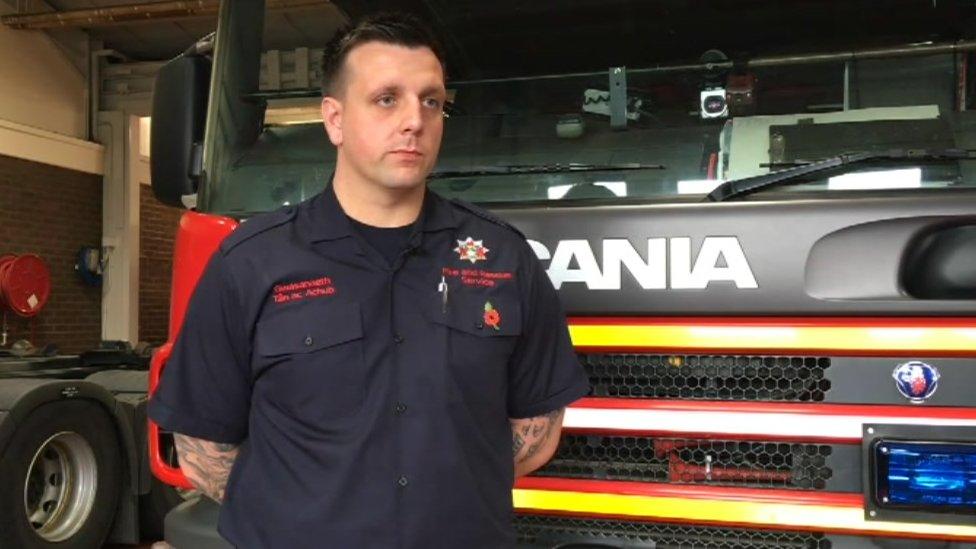
"My grandfather was a firefighter on this station as well. He brought me down here once and I've loved it ever since and there's nothing I want to do more," he said.
The 29-year-old, a self-employed tradesman, believes you have to be both physically and mentally prepared for the job.
"It is a big commitment and you've got to want to do the job. It's not a game, I would say, you do have to be professional and put the time and effort in to learn the job and know it inside out because that's what essentially saves lives.
"It's a different mindset from when I'm doing my daytime job. You turn in, it could come in as a house fire, then you have to really switch on and get the job done when it matters most."
He said balancing work and family life can be a challenge with two young daughters.
But he added: "My kids, they're quite happy with what I do, they love what I do.
"When they get asked what I do for a living, they don't say bricklaying and plastering, they say I'm a firefighter. They love that."
Crew manager John Phillips, a service engineer at the steelworks, has dedicated more than 100 hours a week to the service for the past nine years.
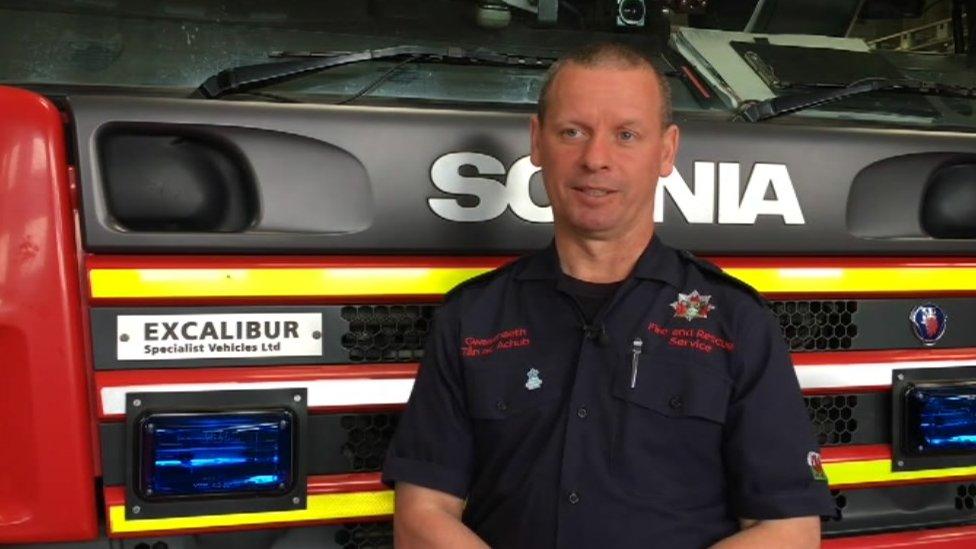
"As soon as that alerter goes off, you don't know what you're going to be going to," he said.
"You turn into the station, you have the tip sheet, you look at it. 'Property fire, persons reported' is probably the biggest one for any of us because that's what we joined for.
"You're basically going to save lives. It's the adrenaline, it keeps you going."
His driving force is knowing that he is helping people and says a simple "thank you" can mean a lot.
"It's a very rewarding job. It's nice to give something back to the community. It's not all about take, it's about giving something back and I do really enjoy it," he said.
"The camaraderie is good, the banter is good. The crew are part of my extended family to be honest with you."
- Published30 April 2017
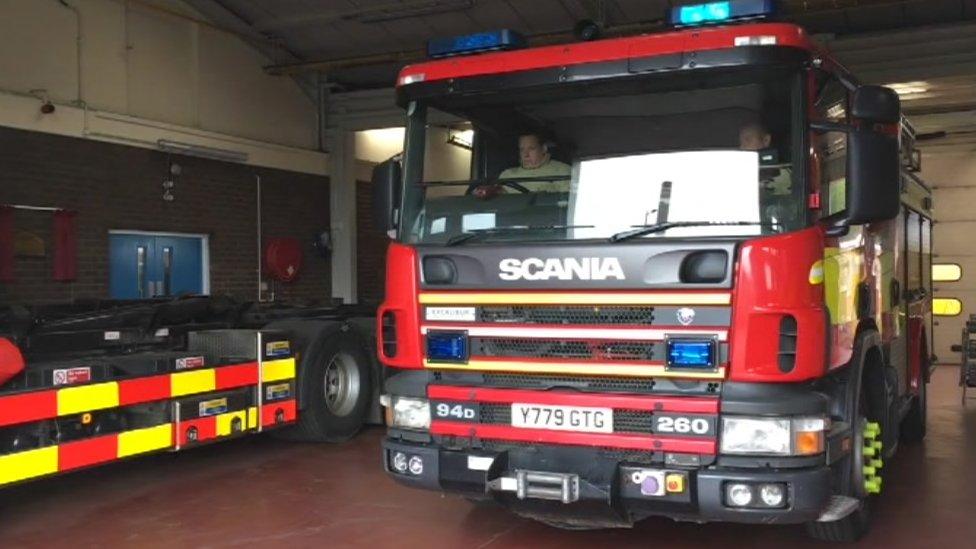
- Published30 April 2017
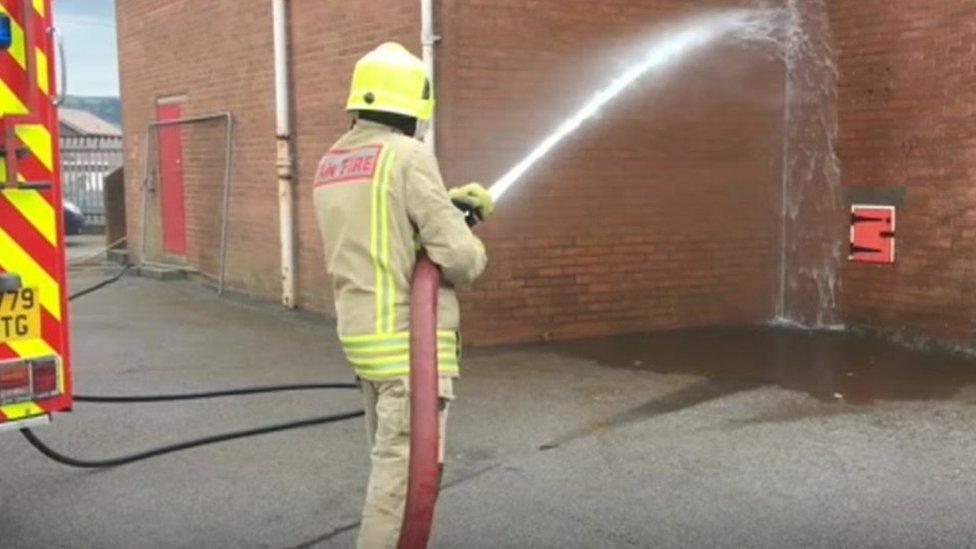
- Published30 April 2017
